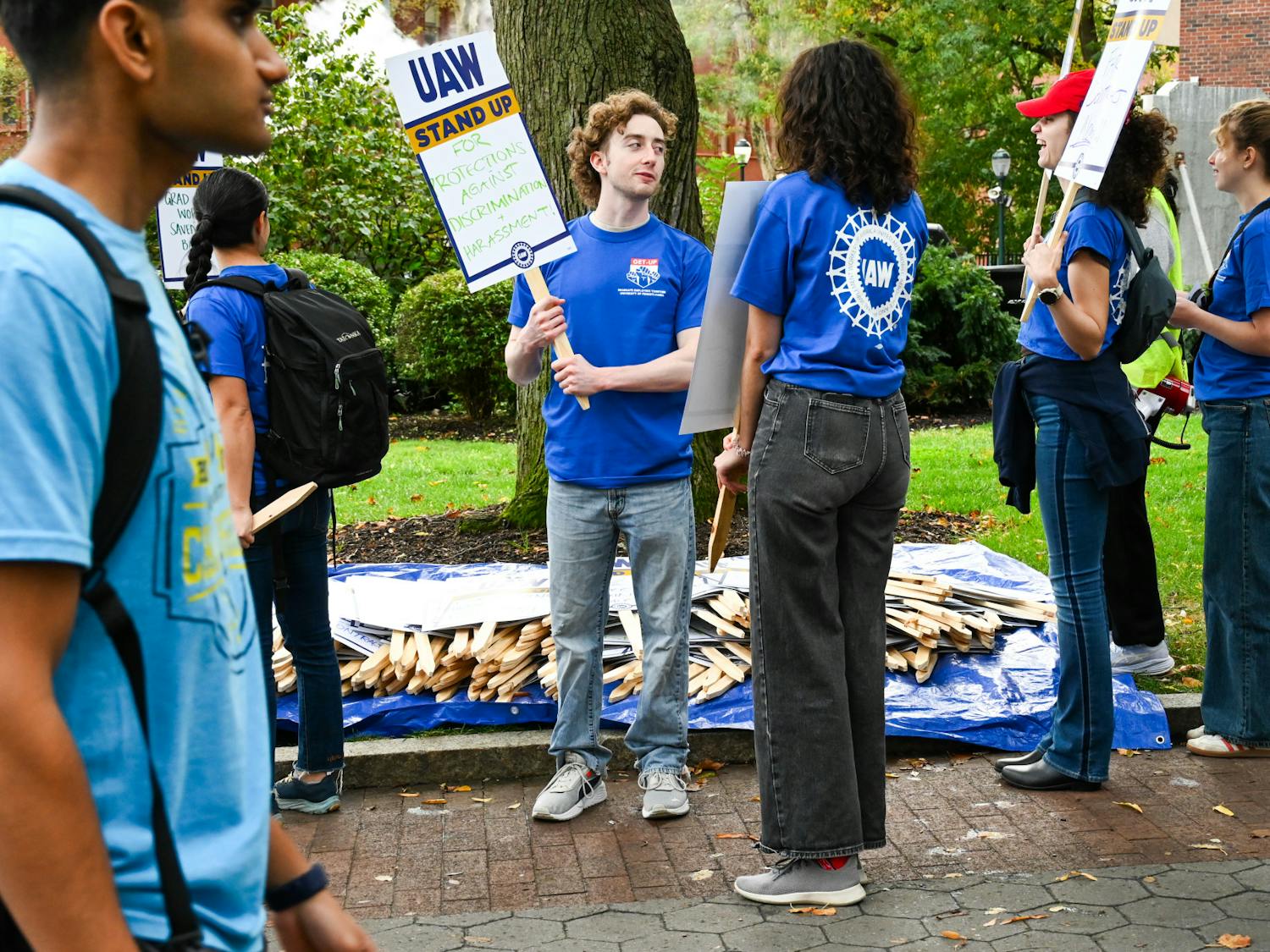Rev. Martin Luther King, Jr.'s wife delivered a powerful keynote speech for Unity Week. In an inspiring speech that drew a standing ovation last night, Coretta Scott King urged individuals to stand up for human rights and equality around the world. Loud applause first filled Irvine Auditorium as the widow of the Rev. Martin Luther King, Jr. approached the podium to address the Penn community as the keynote speaker for the third annual Unity Week. King exhorted audience members to work to overturn oppression. She said each individual can positively affect society, adding that to serve humanity, people must fully develop themselves spiritually, with complete purification from selfishness, apathy and prejudice. One way to serve humanity is to stand up -- in non-violent ways -- for everyone's dignity and human rights, no matter what their culture,King said. "Never doubt that you have the power or leadership to institute solid change," she said. "Now is the time to lead your generation to a better America." She directed many of her comments to the younger generation, reasoning that they need leaders for unity now more than ever before. King called America a very tribal nation, even though she said the public fails to see it that way. Rather than make cultural differences a source of hostility, people should celebrate them, for they make America a great nation, she said. "We must eliminate the gulf of mistrust and ignorance that keeps us from learning from each other," she said. King expressed deep concern that the University does not officially observe the federal holiday honoring her husband. She said the holiday raises awareness about non-violent action against discrimination -- in the late civil rights leader's spirit. She also added her voice to the chorus protesting recent steps to abolish affirmative action. She said such programs are a cost-effective way to help alleviate discrimination. Noting that the federal government has paid Japanese Americans who were interned during World War II, King argued that if other minority groups are entitled to compensation for past discrimination, African Americans should be too. In a segment of the speech that hit home for many in the audience, King addressed crime and its causes. She railed against the "out-of-control" manufacture and sale of handguns, epidemics of drug abuse and the media's glorification of violence, saying these lead to increased crime. But she did more than discuss the problems she saw in today's society. King also cited solutions, including expanding education and job training for young people, slashing the military budget by 25 percent to cover the costs. Addressing Penn's problems specifically, King suggested incorporating the community into University life through employment and scholarship programs for neighborhood residents. In closing, King quoted her husband, challenging her audience to lead a new civil rights revolution. ""Be a drum major for justice, be a drum major for human rights. Be a drum major for beloved community with all your heart and soul and you will be that servant," she said. The United Minorities Council sponsored King's speech.
The Daily Pennsylvanian is an independent, student-run newspaper. Please consider making a donation to support the coverage that shapes the University. Your generosity ensures a future of strong journalism at Penn.
Donate







